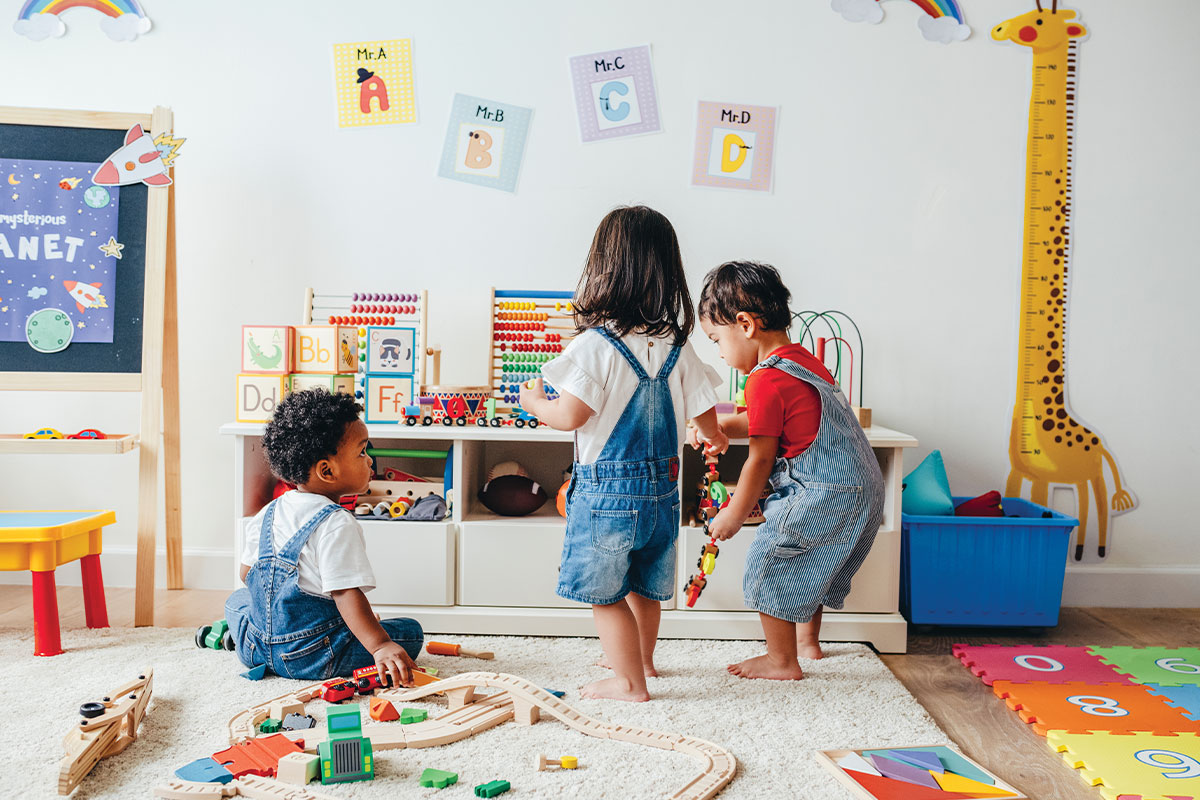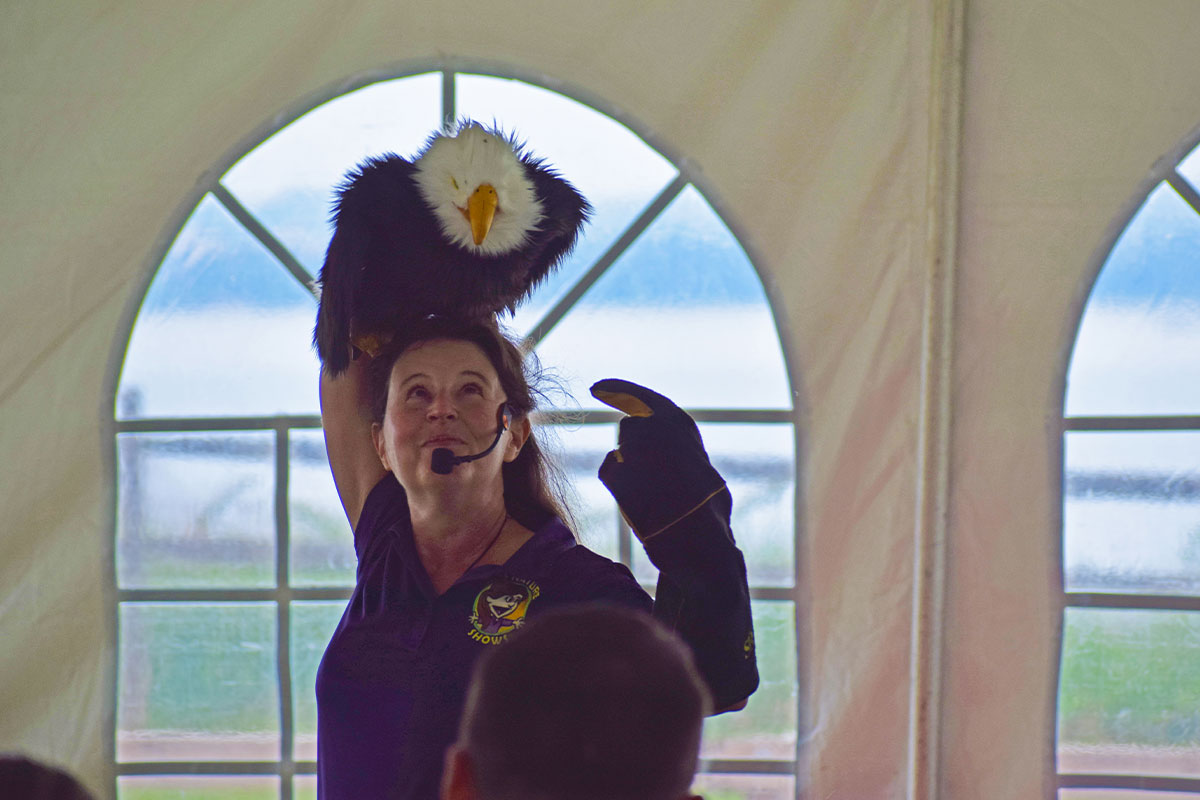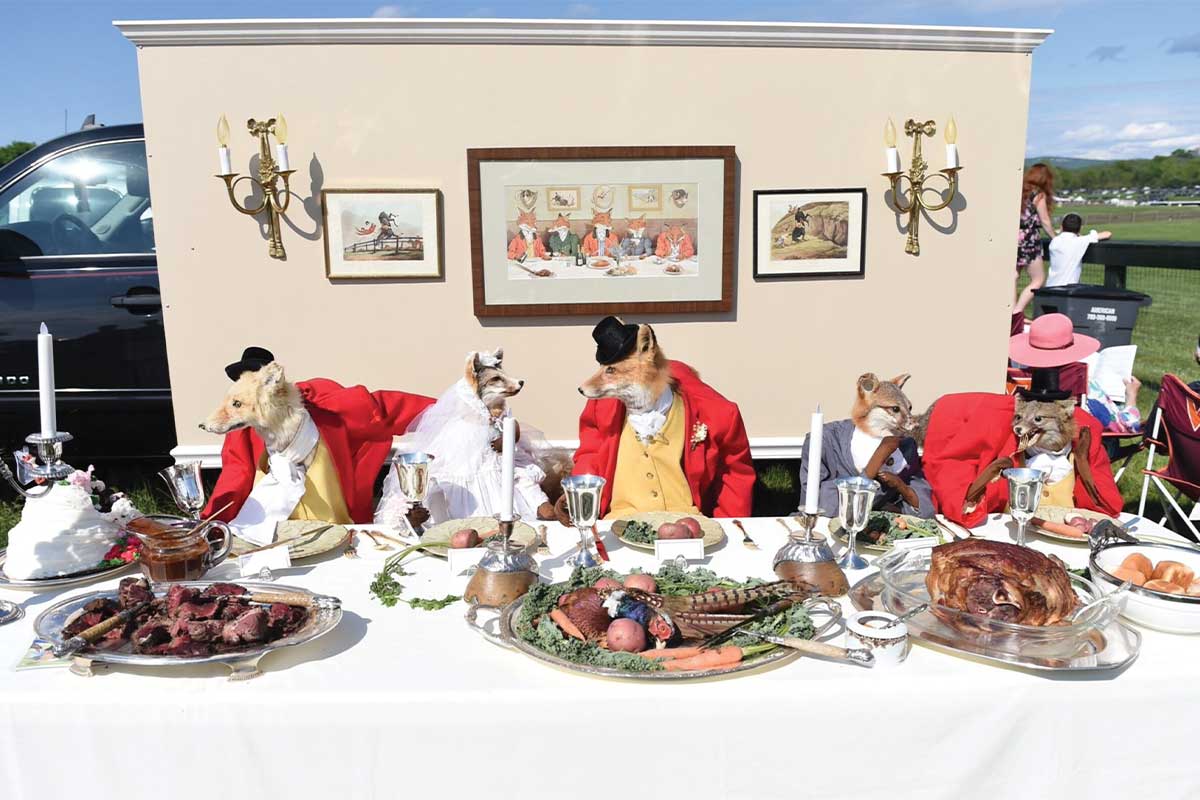Starting a child at day care or preschool is a life-altering step. We reached out to three experts for advice on frequently asked questions: Ginger O’Rourke, director of United Christian Parish Preschool in Reston; Leila Kaszubinski, director of Robert E. Simon, Jr. Children’s Center in Reston; and Cassy Bindis, vice president of Aquia Harbour Preschool in Stafford. Here, they share tips for selecting the right option for your family and how to help with the transition.
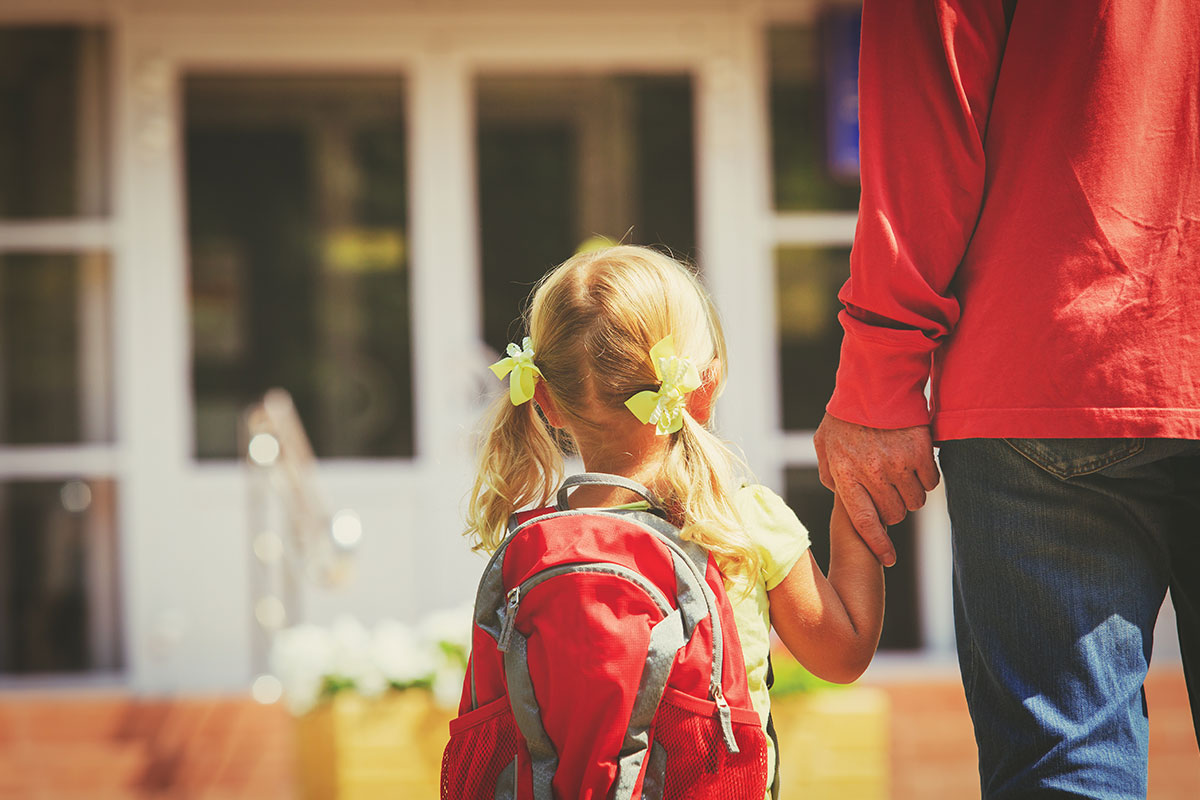
How can you make sure your child’s first day of preschool goes smoothly?
Bindis: Be sure to go to a ‘meet the teacher’ night if offered. It may help minimize your child’s stress if he or she can meet his teachers and see the space before the first day of school. Practice independent habits, like zipping coats, opening food containers, and using the bathroom. Read books about preschool, discuss the daily routine at preschool, and talk about all the fun things your child will do at preschool.
O’Rourke: Allow plenty of time on that first day. Rushing only makes anxiety worsen. Give plenty of time for transitions, a good night’s sleep, and breakfast. When saying goodbye, be positive and quick. Give them concrete details: ‘I will see you after you play outside, and then we will have lunch together! I know it’s hard to say goodbye, but we will be together soon. Miss Ginger will keep you safe.’ Be consistent, always say goodbye, and prepare for any changes (substitute teachers, late arrival, early pickup). Expect tears from both you and your child in the beginning! That is OK. Each day will get easier!
Kaszubinski: Children learn best in an environment that they can trust and within a routine that is consistent. Your child may pick up on your anxiety. My best advice to parents is to leave their uncertainty at the door. Show your child through your interactions, words, and body language that this new place and these new people are safe. Also, make sure you are mimicking a school-day schedule before the drop-off on day one. This way, your child may be with new people and in a new room, but the routine will be familiar. When in doubt, ask the teacher for pointers on how best to help your child on the first day.
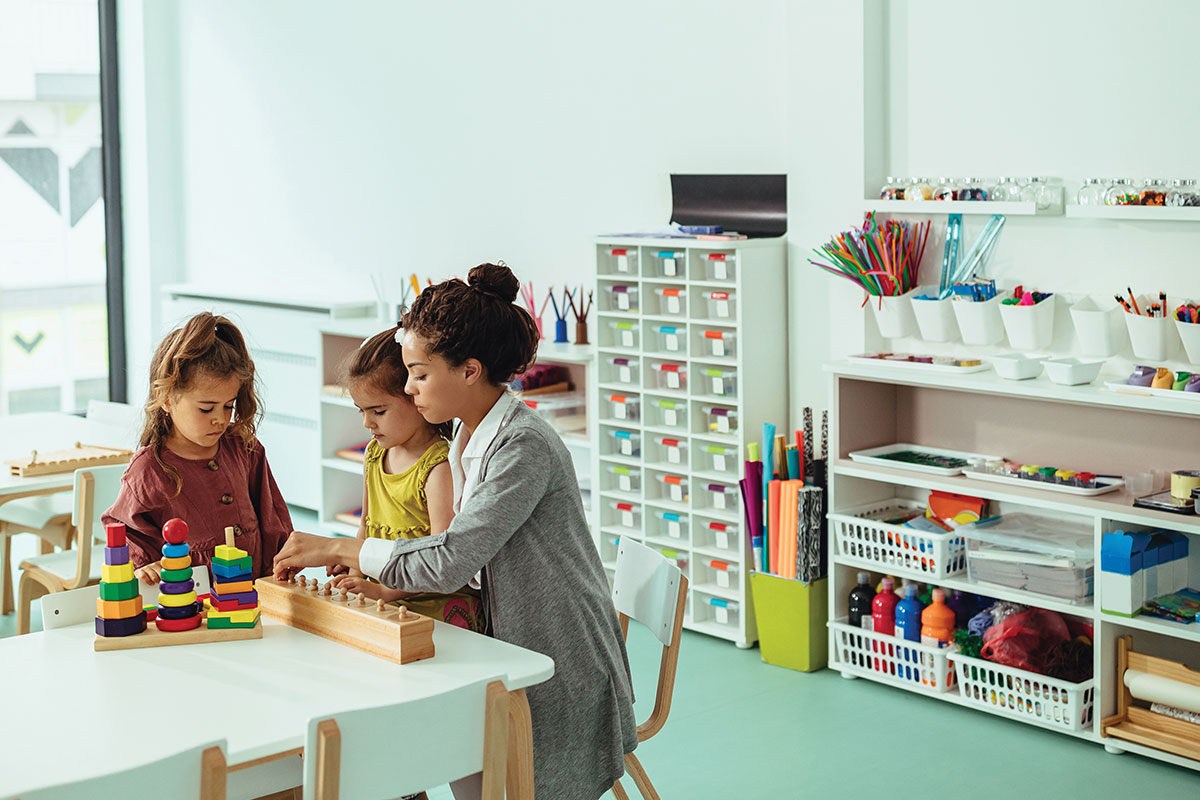
What should you ask when touring a day care?
Kaszubinski: The most important questions to ask are about the logistics: cost, ratios, hours, holidays, and more. I also believe that the school philosophy and curriculum are important to know and learn about on a tour.
How do you know which day care is best for your child?
Kaszubinski: The most important information gained on a tour will be from impressions. Did you feel comfortable? Were the classrooms inviting? Did the children and staff look engaged? Did it feel like a space where your child would be cared for, safe, and learning? Asking to speak to current parents will also give a prospective parent a better understanding of whether a particular center is the right place for them.
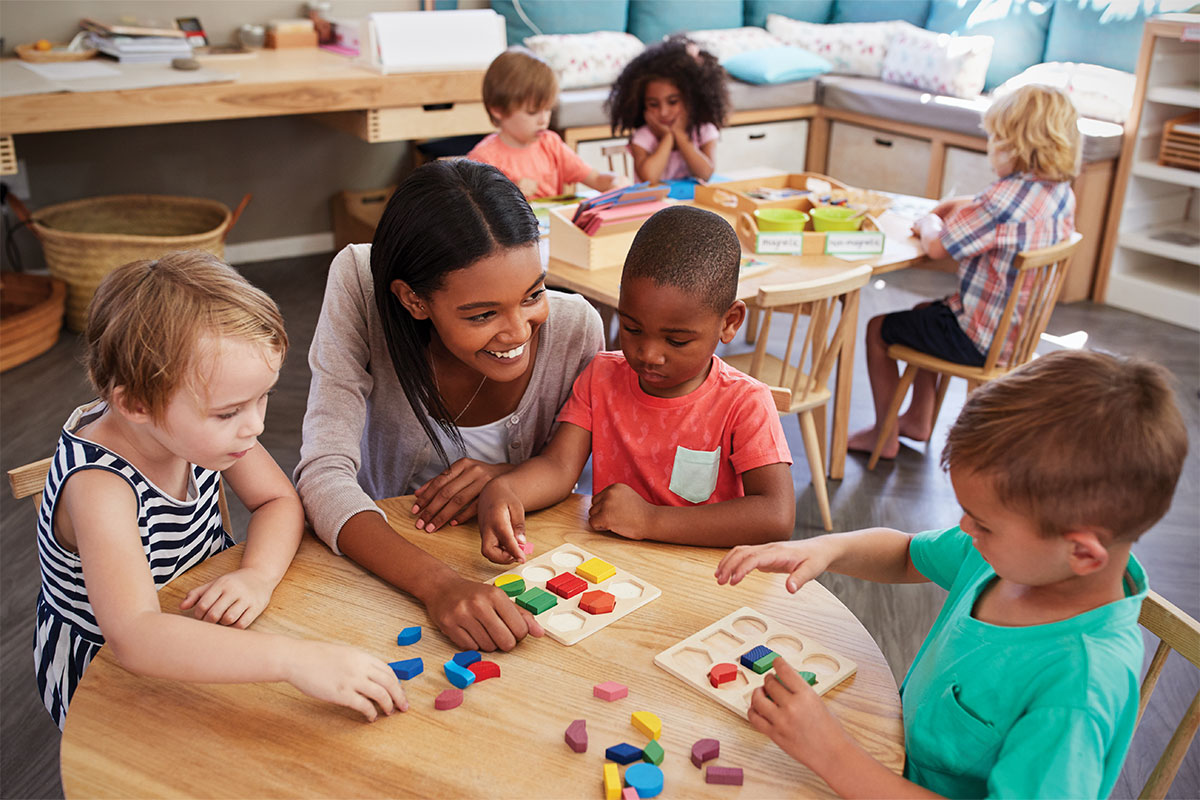
What should you ask when touring a preschool?
O’Rourke: You should reflect on what is important to you as a parent before the tour. Come ready with your questions, even written down, so you can be sure you get what is important to you answered. Top questions to ask:
- What do teachers do to encourage positive, connected relationships? How do they establish collaborative relationships between families?
- Does the program have consistency of care? Meaning, your child has a primary caregiver with whom they can build a relationship.
- What are the ratios of children to teachers?
- What is the curriculum? Is it play-based or academic? Does it foster all areas of development?
- Are all teaching practices culturally and developmentally appropriate?
- How are children assessed for progress and development?
- How does the school promote healthy habits and protect children from injury?
- Is the school licensed and accredited?
- How often are the school practices and environment inspected for safety?
- How is the staff trained professionally?
- Is the staff trained for emergencies, and how are those practices decided and executed?
- Is the building secure?
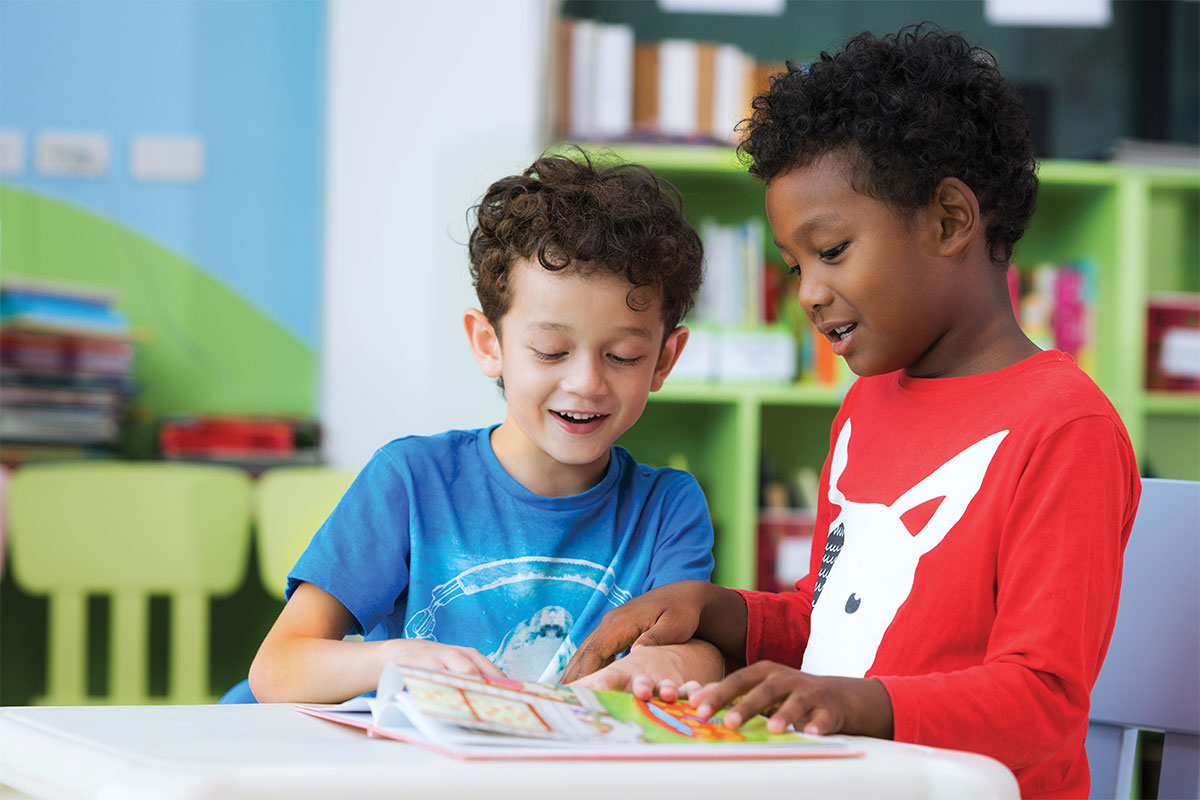
How do you know which preschool is best for your child?
Bindis: Consider how your child learns best — verbally, visually, play-based learning, structured routines — and match that style. Take the size of the preschool into account: Does your child become nervous around larger crowds, or do they thrive in a very social setting? Also, consider how you feel about being active in your child’s preschool experience. Some schools, including Aquia Harbour Preschool, are set up as co-op schools and encourage you to help in and out of the classroom.
O’Rourke: Bring your child with you on the tour! Let them experience the space and observe how the staff interacts with your child. Before visiting, make a list of what is important to you. Children learn best when they feel secure, through playful experiences and exploration, and at their own pace. Consider your child’s temperament and your own expectations from the program. Do you value teacher-child connection over academic rigor? Do you want your child to have lots of outdoor play? Do you appreciate a well-planned curriculum, or something less structured? Do you want a program that focuses on emotional literacy and self-regulation, or do you want a more traditional preschool? Read philosophy statements of the schools you visit. Do you feel at home as you tour? Gauge the energy of the people in the school to your own. Do you see yourself as part of the school ‘family’? I always encourage families to tour many different schools. You will know where you fit!
Feature image rawpixel.com/stock.adobe.com
This story originally ran in our August issue. For more stories like this, subscribe to Northern Virginia Magazine.

